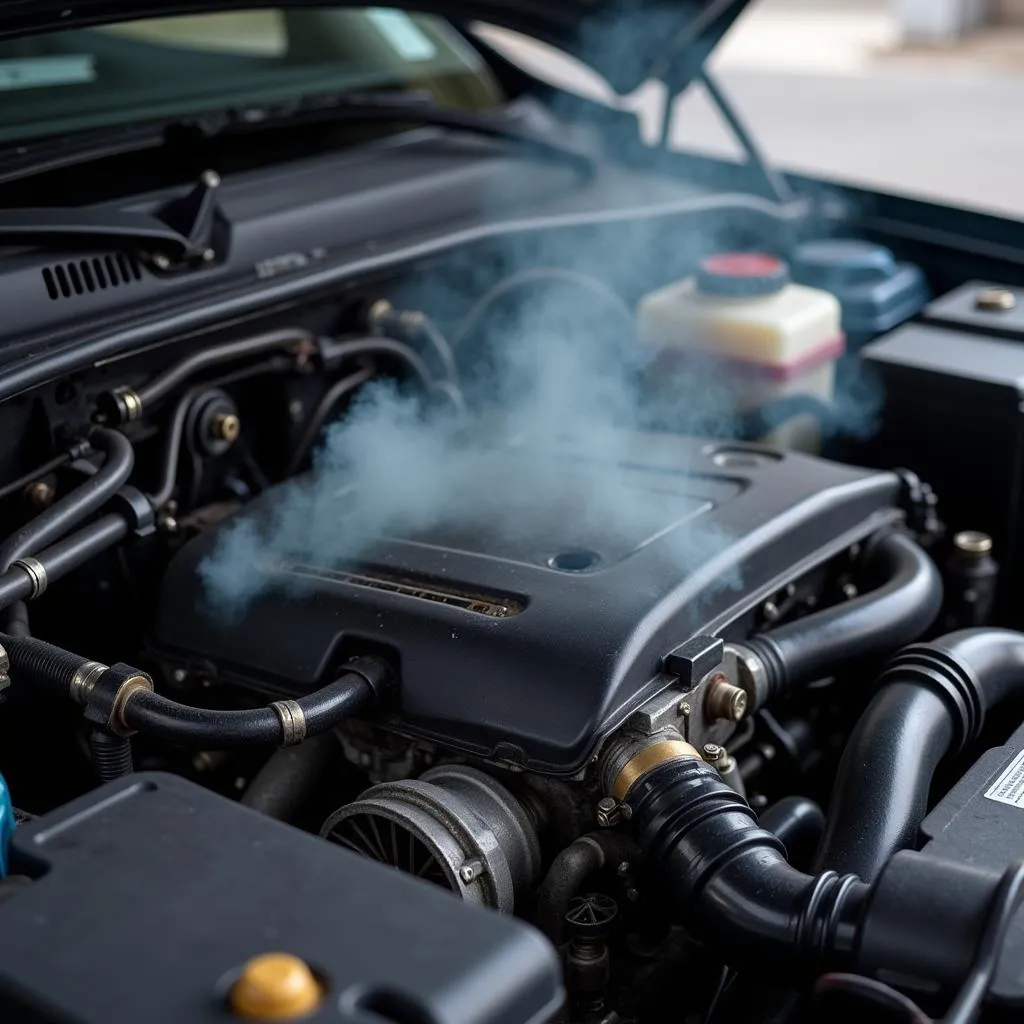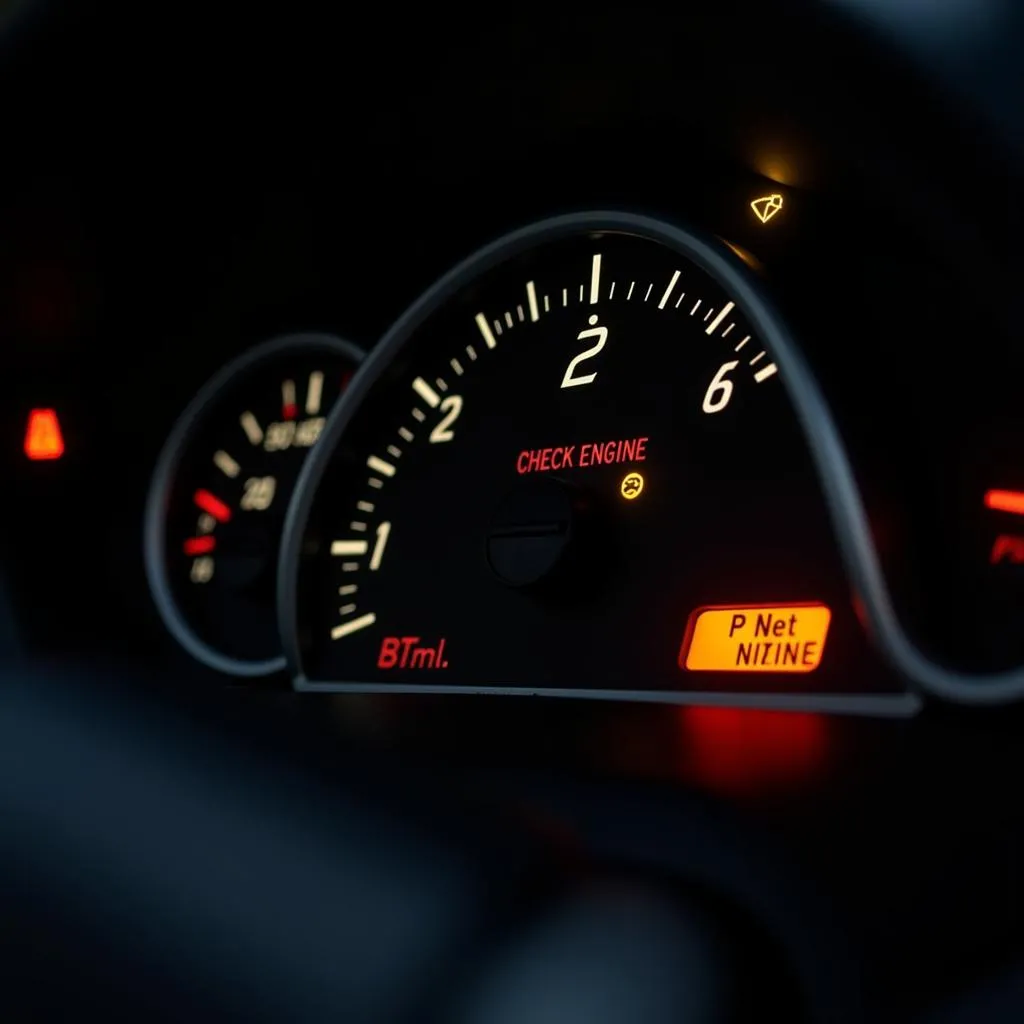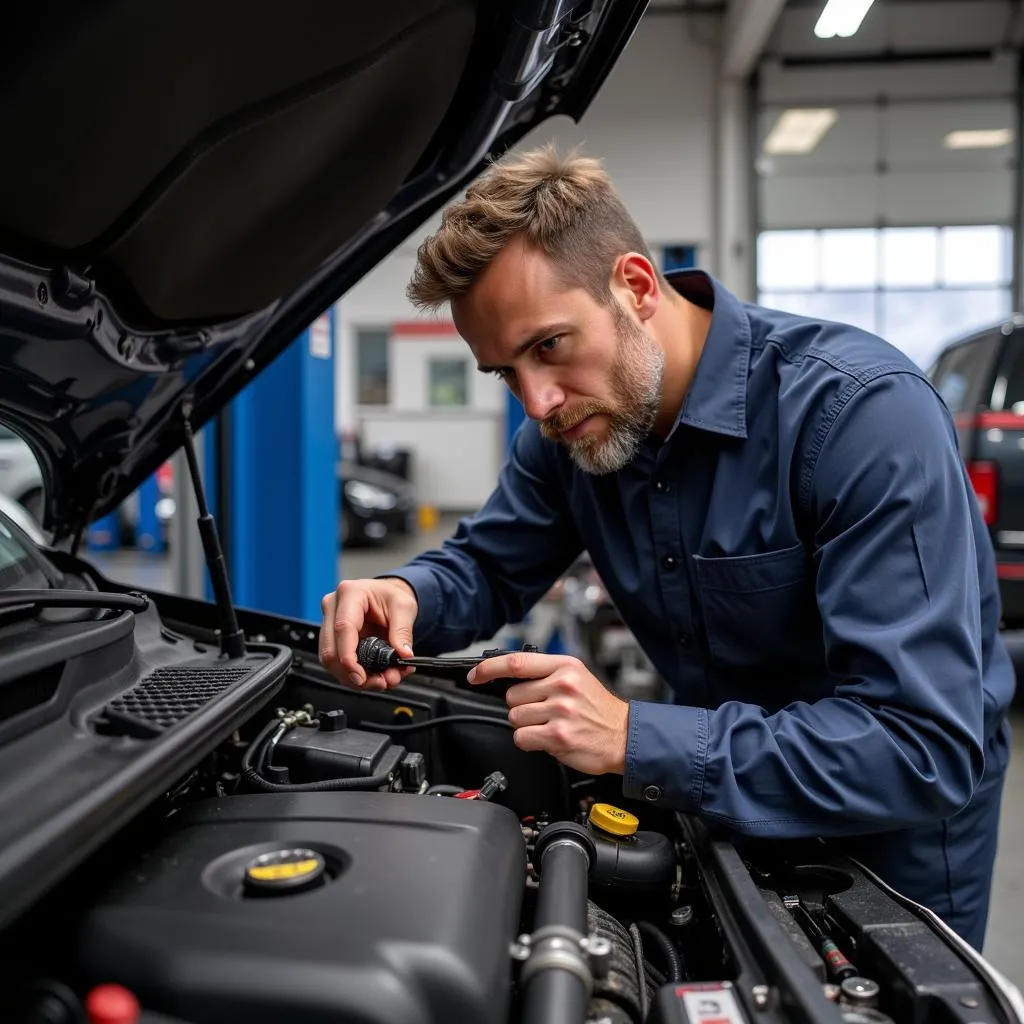If your car isn’t running as smoothly as it used to, it might be telling you it’s time for a tune-up. But how can you be sure? Don’t worry, we’ll guide you through the telltale signs that your car needs a tune-up, helping you avoid costly repairs and keep your vehicle running in tip-top shape.
 Car engine sputtering and struggling to start
Car engine sputtering and struggling to start
Understanding What a Tune-Up Entails
Before diving into the warning signs, let’s clarify what a tune-up actually involves. Traditionally, a tune-up meant adjusting the carburetor, spark plugs, and timing. Today’s modern cars with electronic fuel injection and computer-controlled systems require less frequent and less intensive adjustments.
However, a modern tune-up focuses on inspecting and replacing essential components that wear down over time, like spark plugs, air filters, and fuel filters. It can also include checking fluid levels, tire pressure, and performing other routine maintenance tasks.
7 Signs Your Car Needs a Tune Up
Here are some of the most common indicators that your car could benefit from a tune-up:
1. Decreased Fuel Economy
Are you making more frequent trips to the gas station? If you notice a sudden and significant drop in your car’s gas mileage, it’s a red flag that something is amiss. A tune-up can help identify issues like clogged air filters or worn-out spark plugs that can negatively impact fuel efficiency.
2. Engine Performance Issues
A well-tuned engine should run smoothly and quietly. If you experience any of the following, it’s a sign your engine might need some attention:
- Rough idling: Does your car shake or vibrate excessively while idling?
- Stalling: Is your engine stalling unexpectedly, especially when starting or coming to a stop?
- Hesitation or Surging: Do you feel a lag in acceleration or a sudden surge in power when pressing the gas pedal?
 Car dashboard illuminated with multiple warning lights
Car dashboard illuminated with multiple warning lights
3. Strange Noises
Unusual noises coming from your car are never a good sign. Pay attention to any:
- Knocking or Pinging Sounds: These could indicate problems with your engine’s combustion process.
- Hissing Sounds: These might suggest a vacuum leak, which can disrupt engine performance.
- Squealing or Screeching: This could point to worn-out belts that need replacement.
4. Exhaust Smoke
Your car’s exhaust should be relatively clear. Excessive or discolored smoke can be a sign of engine problems:
- Black Smoke: Indicates your engine is burning too much fuel.
- Blue Smoke: Suggests your engine is burning oil, which can be a serious issue.
- White Smoke: May mean there’s coolant leaking into the combustion chambers.
5. Illuminated Check Engine Light
While the dreaded “check engine” light can indicate a range of problems, it’s often triggered by issues that a tune-up can address. Don’t ignore this warning light – get your car diagnosed promptly to identify and fix the problem.
6. Difficulty Starting
Is your engine cranking slowly or taking multiple attempts to start? This could be a sign of a weak battery, but it can also indicate a problem with your spark plugs, fuel system, or other components that a tune-up can address.
 Mechanic inspecting a car engine for issues
Mechanic inspecting a car engine for issues
7. It’s Been a While Since Your Last Tune-Up
Even if you aren’t experiencing noticeable issues, it’s crucial to follow your car manufacturer’s recommended maintenance schedule for tune-ups. This proactive approach can prevent small problems from escalating into major (and expensive) repairs down the road.
[What are the signs that your car needs a tune-up?](https://obd2-scanner.net/what-are-the-signs-that-your car-needs-a-tune-up/)
Recognizing the signs of a car in need of a tune-up can save you time, money, and potential headaches in the long run.
Conclusion
A well-maintained car is a safer and more reliable car. By paying attention to the signs discussed above, you can ensure your vehicle receives the tune-up it needs to perform at its best. If you’re unsure about your car’s condition, don’t hesitate to schedule an inspection with a qualified mechanic.
Remember, a little preventive maintenance goes a long way!
